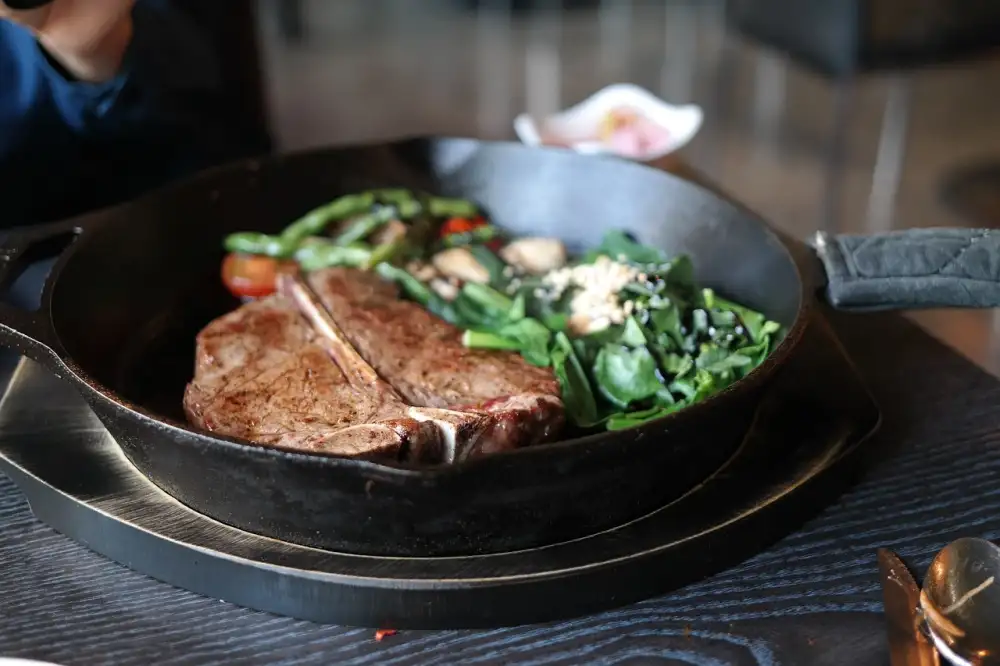Ultimate Guide to Cleaning Your Cast Iron Skillet Like a Pro

Gather materials: coarse salt, paper towels, vegetable oil.
Before you start cleaning your cast iron skillet, make sure you have the necessary materials on hand. You will need coarse salt, paper towels, and vegetable oil. Coarse salt works as a gentle abrasive to help remove stuck-on food particles without damaging the skillet's seasoning. Paper towels are absorbent and ideal for wiping away the salt residue. Vegetable oil is essential for re-seasoning the skillet after cleaning, as it helps maintain its non-stick surface. With these basic supplies in place, you're ready to begin restoring your cast iron skillet to its former glory.
Scrub skillet with coarse salt and paper towels to remove food residue.
To effectively clean your cast iron skillet, start by sprinkling a generous amount of coarse salt onto the surface. Using a paper towel, scrub the skillet in circular motions to lift off any food residue that may be stuck on. The abrasiveness of the salt helps to loosen stubborn bits without damaging the seasoning of the skillet. Repeat this process until the surface is smooth and free from any leftover food particles.
Rinse skillet with hot water and dry thoroughly.
After scrubbing the cast iron skillet with coarse salt and paper towels to remove any food residue, the next crucial step is to rinse it with hot water. The hot water helps to loosen any remaining particles and ensures a thorough cleaning process. Once rinsed, it is important to dry the skillet thoroughly using a clean towel or by placing it on a stovetop over low heat until all moisture has evaporated. Proper drying is essential to prevent rust from forming on the skillet's surface.
Apply a thin layer of vegetable oil to prevent rust.
After thoroughly drying the cast iron skillet, it is crucial to prevent rust by applying a thin layer of vegetable oil. This process helps create a protective barrier against moisture, which can lead to rust formation. Simply pour a small amount of vegetable oil onto a paper towel and rub it all over the skillet, including the handle and exterior. Make sure to coat the entire surface evenly but avoid using too much oil as it may become sticky or rancid over time. This step not only safeguards your skillet from rust but also aids in maintaining its non-stick seasoning for future cooking endeavors.
Store skillet in a dry place to maintain its seasoning.
After cleaning and oiling your cast iron skillet, it is crucial to store it properly to maintain its seasoning. Store the skillet in a dry place to prevent moisture from causing rust or damaging the seasoning. Avoid storing it in a damp environment or leaving it exposed to air, which can lead to oxidation. If possible, store the skillet in a cool, dry place with good air circulation. Additionally, consider placing a paper towel or cloth between stacked skillets to prevent any potential damage to the seasoning from friction. By storing your cast iron skillet correctly, you can ensure that it remains well-seasoned and ready for your next culinary adventure.
Published: 20. 03. 2024
Category: Home



